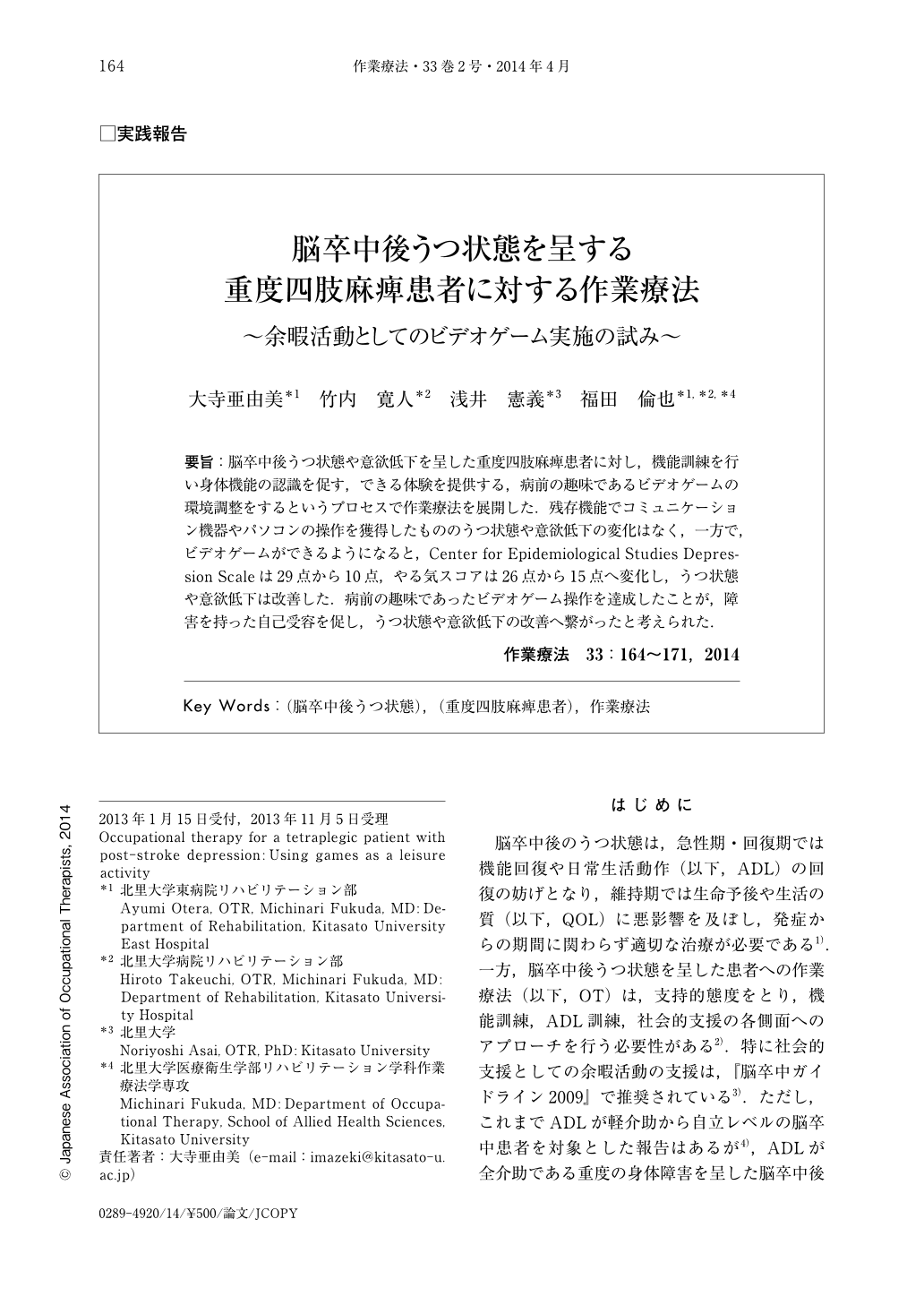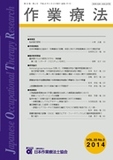Japanese
English
- 販売していません
- Abstract 文献概要
- 1ページ目 Look Inside
- 参考文献 Reference
- サイト内被引用 Cited by
要旨:脳卒中後うつ状態や意欲低下を呈した重度四肢麻痺患者に対し,機能訓練を行い身体機能の認識を促す,できる体験を提供する,病前の趣味であるビデオゲームの環境調整をするというプロセスで作業療法を展開した.残存機能でコミュニケーション機器やパソコンの操作を獲得したもののうつ状態や意欲低下の変化はなく,一方で,ビデオゲームができるようになると,Center for Epidemiological Studies Depression Scaleは29点から10点,やる気スコアは26点から15点へ変化し,うつ状態や意欲低下は改善した.病前の趣味であったビデオゲーム操作を達成したことが,障害を持った自己受容を促し,うつ状態や意欲低下の改善へ繋がったと考えられた.
An occupational therapy program was designed for a 30-year old male suffering from post-stroke partial tetraplegia and depression. His program was initially designed for performing functional exercises and practicing using a communication aid. After three months of training, he became able to use the communication aid, but his physical and mental states deteriorated. The patient's life history indicated pre stroke interest in playing video games. Since he was not able engage in this activity due to his partial tetraplegia, we designed a game controller which enabled him to play the game using his own hands, and as a result, his mental state improved. Both scores of Center for Epidemiological Studies Depression Scale and Apathy Scale improved, from 29 points to 10 points and from 26 points to 15 points, respectively. These results suggested that engaging in video games enable him to accept his handicap. Therefore, he discovered a renewed sense of purpose in his life.

Copyright © 2014, Japanese Association of Occupational Therapists. All rights reserved.


